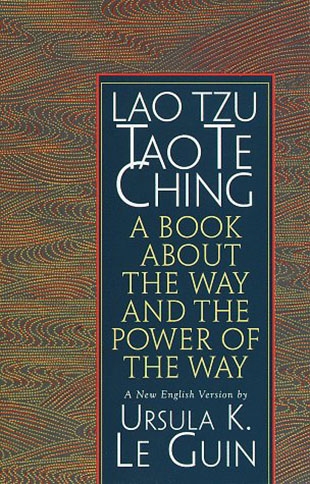Ursula Le Guin is the widely acclaimed author of more than 30 books of fiction, poetry, and essays. In her elegant translation of the Tao Te Ching, done with the collaboration of J.P. Seaton, Professor of Chinese at the University of North Carolina, she aims for an English version of this classic that catches the poetic fire of the original. Equally endearing are her idiosyncratic commentaries on the text. She calls them "unscholarly" but they do reveal her intuitive appreciation of the philosophy of Taoism.
At the end of her brief introduction, Le Guin states:
"It is the most lovable of all the great religious texts, funny, keen, modest, indestructibly outrageous, and inexhaustibly refreshing. Of all the deep springs, this is the purest water. To me, it is also the deepest spring."
Here are several examples of her translations of the Tao Te Ching:
9. Being Quiet
Brim-fill the bowl,
it'll spill over.
Keep sharpening the blade,
you'll soon blunt it.
Nobody can protect
a house full of gold and jade.
Wealth, status, pride,
are their own ruin.
To do good, work well, and lie low
is the way of blessing.
24. Proportion
You can't keep standing on tiptoe
or walk in leaps and bounds.
You can't shine by showing off
or get ahead by pushing.
Self-satisfied people do no good,
self-promoters never grow up.
Such stuff is to the Tao
as garbage is to food
or a tumor to the body,
hateful.
The follower of the Way
avoids it.
